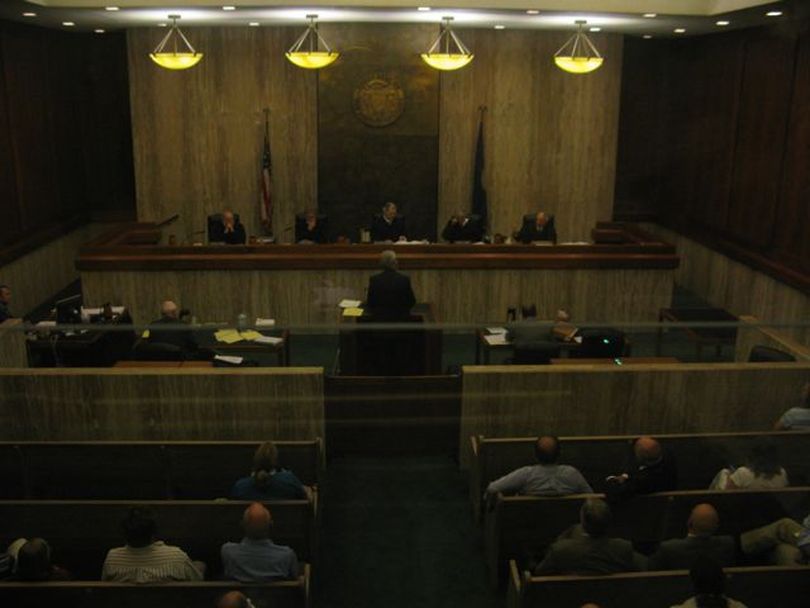Idaho justices grill lawyer for former justice candidate

Idaho Supreme Court justices had sharp questions today for Michael McNichols, the Lewiston attorney who represented District Judge John Bradbury before the high court, challenging a move by the state Judicial Council to suspend him for not living in his district. Bradbury maintains he does live there - when elected judge, he bought a house in Grangeville, has his homeowner's exemption there, registered to vote there and votes there, and lives there when he is in Grangeville, at least one day a week. But he also has a home in Lewiston.
Justice Warren Jones questioned whether that was enough. "If I happened to have a home in five different counties," he said, would he be deemed to live in each? He also noted that someone could live in Boise but have a lake house in McCall in which they spent each weekend, and asked if that meant the person resided in McCall. Chief Justice Daniel Eismann asked if perhaps "the Legislature simply didn't want judges to be traveling late at night." To that, McNichols responded, "What the Legislature wanted was for the judges to go to the county where the business was, and do the county's judicial business, and Judge Bradbury does that." McNichols argued that the Judicial Council apparently confused the legal concepts of residency and domicile - the law merely requires the judge to reside in his district. It doesn't say the judge must reside there full-time, or reside there and nowhere else, he said. At one point, McNichols said, the Judicial Council told Bradbury that he must "stay" in his Grangeville home. "That means he can't go out of his house ... can't go to the store, can't go to the post office ... most importantly, he can't go to the courthouse."
Justice Jim Jones said small communities wanted local judges - not carpetbaggers who just showed up in town to decide cases. "The judge was going to be right there sleeping with all the neighbors," Jones said. McNichols said the state owes Bradbury a definition of what "reside" means before it charges him with violating that. "You come out with a definition, Judge Bradbury will adhere to it, and he'll comply," McNichols told the justices. "But he's entitled to have that definition before he's punished for violating that." He also said, "The Judicial Council apparently thought he had to sleep there every night. That's the reason he's being put through these proceedings at the risk of his elective office."
Bradbury made a statewide splash in 2008 when he ran for the Idaho Supreme Court and nearly defeated newly appointed Justice Joel Horton; Bradbury got 49.9 percent of the vote to Horton's 50.1 percent. Horton isn't sitting on the case; retired Justice Wayne Kidwell is sitting in instead. Attorney Keith Roark is representing the Judicial Council. He told the justices, "This is a bewildering case." It's all about the judge being there when needed to give a defendant a fair trial, he said. He discounted arguments that the Judicial Council was biased against Bradbury. "Judge Bradbury is either actually residing in the county or he isn't," Roark told the court. The only other possibility, he said: The law is unconstitutionally vague. The justices had some pointed questions for Roark as well; he said Bradbury is inviting the court to "open up a can of worms" by getting into details about what residency means, by specifying days per week or anything like that. "I wouldn't go so far as Justice Jones by suggesting that they were expected to sleep with the neighbors," Roark said, sharing a chuckle with Jones.
